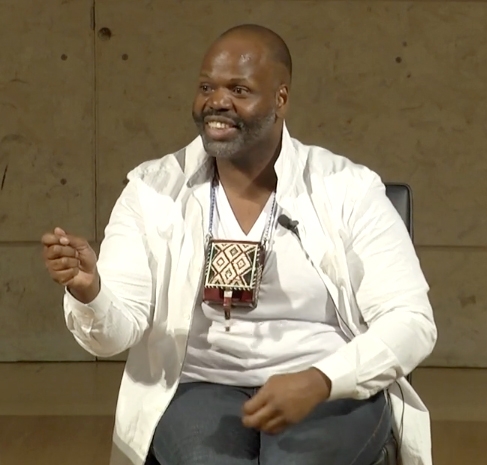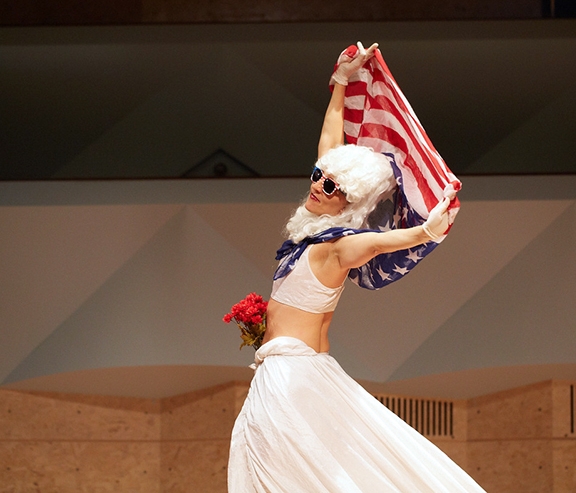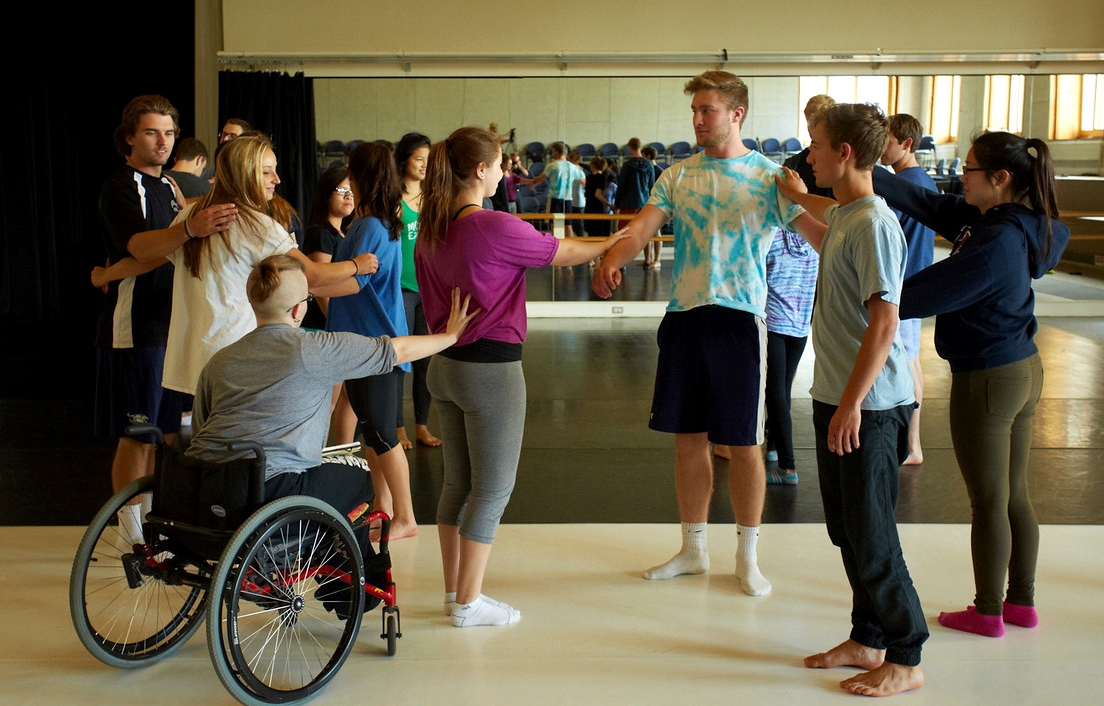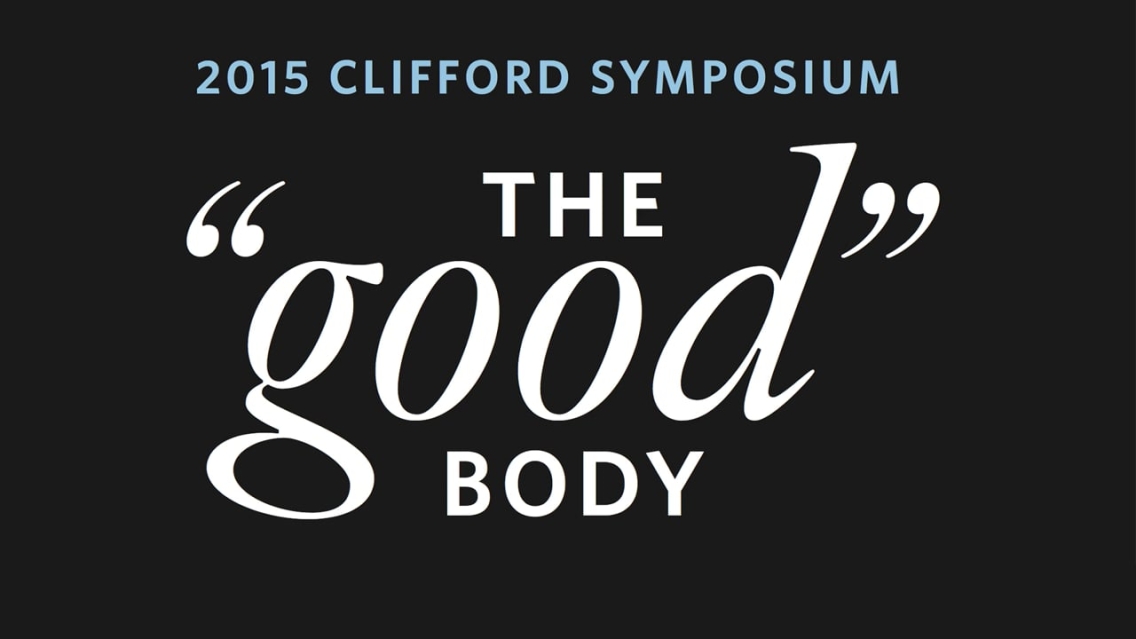Clifford Symposium Stimulates Dialogue about the Human Body
MIDDLEBURY, Vt. – With more than 30 lectures, workshops, performances, panel discussions, presentations, and “snack chats,” the 2015 Clifford Symposium brought the Middlebury community together for an in-depth examination of “The ‘good’ Body” on September 24-26.
Since 1992 the Clifford Symposium has opened the academic year with a sustained and thoughtful examination of a single topic or question. “This year’s symposium,” said Professor James Ralph ’82, dean of faculty development and research, “invites us to examine, explore, and interrogate our beliefs, attitudes, perspectives, and politics about the human body.”
The topic proved to be both provocative and timely. “In the past year our society’s difficulty [with] a wide range of bodies has marked our race relations and more generally our politics,” said Ralph at the opening of the symposium.
A keynote address “The ‘good’ Body: An Unfinished Legacy” was delivered by Barak adé Soleil, a Chicago-based creative practitioner, curator, and consultant, who invited audience members to sit on the Robison Hall stage with him “to create a space that is not hierarchical.” (Sixteen students joined him on stage.) He also gave the audience his cell phone number and invited everyone to text him with “a thought, a question, or a reflection,” and he promised to respond before the conclusion of the symposium two days later.

Soleil’s presentation, which was part lecture and part performance art, shared his perspective as someone with a “racialized and disabled body.” He posed the question, “What is a good body?” and then probed it by asking:
“Does it have a color? A race? Is it thin? Is it a size or a shape? Is it large? Does it have a religion attached to it? Does it need spirit? Does it feel joy? Does it have a gender? Does a gender matter? Does it need feet, hands, torso, knees, thighs…” Soleil posed questions like this more than four minutes, and then concluded, “Is it [ever] that simple?”
During the course of his address, the guest speaker divided his remarks into three segments – the ancestral body, the individual body, and the communal body – and for the final 15 minutes he took questions from the audience.
Liza Sacheli, the director of the Mahaney Center for the Arts, described Soleil’s method as “utilizing techniques drawn from the African diaspora, disability culture, and post-modern and conceptual social forms. He makes theatre, dance, and performance art of the moment and in the moment.” On the second day of the symposium Soleil conducted a movement workshop, and on day three of the event he gave the closing performance with a post-performance discussion.
The symposium also contained a lecture on “Defective, Deficient, and Burdensome: Thinking About Bad Bodies”; a workshop for faculty about inclusive pedagogy; a screening of the film “Phoenix Dance”; several movement classes; and a talk titled “Have You Seen Him As Her? Gender, Clothes, and the Body in ABC’s Guided Tour of Caitlyn Jenner’s Closet.”

One of the principal organizers of the symposium, Assistant Professor Christal Brown, said this year’s goal was “to create entry points for dialogue around challenging topics such as race, class, gender, ability, and disability. Through an eclectic mixture of artists, scholars, and activists, the symposium explored issues related to the perception, treatment, and actions of the bodies we inhabit both individually and collectively.”
Symposia like “The ‘good’ Body” are vital to Middlebury community as the campus community adapts to changes in our society and in our world, Brown said.
“The student presentations at this year’s Clifford Symposium were evidence of the passion our students have for their research, their learning, and one another. I believe we will see the benefits of ‘The “good” Body’ for years to come in our classes and conversations,” she said. “Our impasses to understanding will dissolve giving way to a new perception of all that is good.”
Always free and open to the public, the annual symposium is named in honor of Nicholas Clifford ’60, professor emeritus of history. The 2015 symposium was sponsored by the Center for the Comparative Study of Race and Ethnicity, Movement Matters, Queers & Allies (Q&A), Community Engagement, Anderson Freeman Resource Center, Director of the Arts, and the Living Dance Committee.

– Photographs by Todd Balfour; featured video by Ben Savard ‘14; other videos by Media Services


